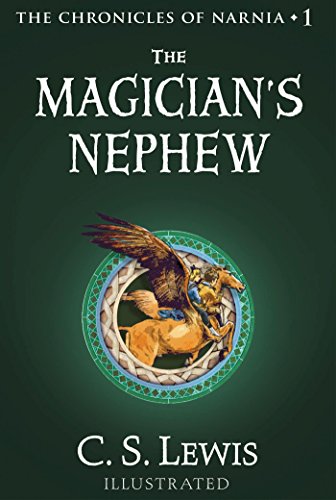A mesmerizing tale of supernatural horror that is simply chilling…
by acclaimed novelist Anne Steinberg and filmmaker/poet Nicholas Tolkien (her grandson and J.R.R.’s great grandson)…
“…atmospheric and disturbing…[for] readers who enjoy…Stephen King and Whitley Streiber…”
Don’t miss Elias’ Fence while it’s 80% off the regular price!
Elias’s Fence
by Anne Steinberg, Nicholas Tolkien
(reduced from $4.99 for a limited time only)
Elias’ Fence is a novel that follows two tracks, that of a magnificent fence forged by a blacksmith. When a young nun modeling as the angel atop the fence is ravished and murdered, the inanimate iron becomes infused with the evil of the heinous crime and cannot be eradicated. On the second track, the wheel of time periodically selects a warrior to fight the eternal struggle between good and evil. A man with a golden tongue is sent into the fight and he declares, “God is dead” and everything you want to do in this life is okay. A fearful young girl learns she can shake his confidence and finds the courage to ignore his frantic pleas for help, the courage to destroy the evil. The Fence is a chilling story of a magnificent Gothic fence forged by a despicable blacksmith and infused with evil.
5-star praise for Elias’ Fence:
“…a gripping tale…will leave you breathless…”
“Chilling tale of a fractured family…where evil is slowly growing more prevalent every day…”
an excerpt from
Elias’ Fence
by Anne Steinberg & Nicholas Tolkien
Copyright © 2014 by Anne Steinberg & Nicholas Tolkien and published here with their permission
Chapter 1
On November 10, 1890, Elias Jacob Pogue was born. He was the second son of Hiram and Abigail Pogue. Their first son, Adam, was born a cripple; his twisted body and rigid hands would not be capable of inheriting the forge, so Elias trained early. His strong arms swung the hammer on the anvil with more power than his father before him. He was a large awkward child. Deep in his skull, under the straw colored head of hair, and behind his calm blue eyes there was no light. The sense that could see possibilities was blind, as his right brain slept a slumber so deep it had never awakened. He lived his childhood that way – a calm stream that did not ripple, but moved him smoothly to adulthood.
On his parents’ death he inherited the forge, the house, and with the burden of his brother he was keenly aware of his need for a wife.
He courted the only spinster in the district – Sarah Elizabeth – passed over by others as too plain, too frail. Saturdays found him sitting on her porch, rocking slowly in the swing. Over lemonade and cookies he weighed the possibilities of her worth. The samples of her cooking were adequate, her person was neat, her clothes clean and pressed. The drawback was her hips – too slim. He was not sure strapping sons would issue from her.
Still, there was Adam and dirty dishes and laundry piling up and she was the only unmarried woman in the district. They were suited to each other, both being colorless, calm, and without any passion for life; it was just another burden to be endured.
Their marriage changed nothing in Sarah’s life. She traded one kitchen for another. Elias’s life improved, for by chance he heard of the church needing a handyman and in desperation they accepted his brother, the inept cripple. Elias was aware that the favor would be called in some day and he regretted the decision when, in the second week, Adam, learning the duties of bellringer, inadvertently stood in the largest bell’s path and quickly and without suffering was, according to the nuns, invited to God’s house.
Sarah Elizabeth’s presence had changed the house. The trunks, the lace curtains, the sewing baskets and messy little things she needed had to be sorted and kept track of. Elias resented the intrusion, but the necessity of her work made the trade acceptable. He had no desire to tend to the chores of everyday living – the cooking, the cleaning, the incidentals of housekeeping. He was the Smith. He was comfortable in his forge overlooking the hillside.
Their awkward coupling in the dark produced two stillborn sons. She was too old and dried up – beyond the time of a fertile womb. Elias’s disappointment in her was expected and he did not dwell on it, for his house was well kept, the food was adequate, and his clothes were clean and mended.
Elias knew nothing of the woman that shared his bed. She tolerated his mounting of her body with her lips tightly clenched in the dark, for since finding religion she was sure this was sin when there was no chance of issue. When finished he simply felt like he had completed another bodily function, like eating or elimination.
He knew she rarely laughed, but neither did he. He knew she had cried twice – at the time of her sons’ deaths – and he wondered at the tears for he had never felt their release himself.
The years slipped past routinely, the various holidays marked by fruitcake at Christmas, ham at Easter, one season dissolving into another – Winter, Spring, Summer, Fall.
Elias spent his time shoeing horses, doing iron work on commission – balconies, fences, statuary. He was an adequate smith, offered more work than he wanted, and turned many away.
There came a time when Sarah Elizabeth had the house immaculate, the bread made, the clothes clean and mended, and in idleness the hunger came. Ravenous, she asked permission of Elias, went down the hill to the church, and found her emptiness filled. Here she was finally happy. Religion promised and she believed. To be worthy, she threw herself into the church work – endless quilting bees, bake sales, collections for the poor. Sarah Elizabeth became known as a do-gooder. Elias had no idea what prompted her, what motivated this activity, but it was fine with him – like everything else.
When Sarah became ill, it was mundane, routine. She took to her bed and a procession of nursing nuns and local women came to assist. They bothered Elias not in the least. He had his work. His hammer rang on the metal while below in the house the women did whatever needed to be done in this time of dying.
Elias’s house was still clean, his meals were adequate, and his clothes were clean and mended. The only change was that he slept in the outer room and exchanged polite words with Sarah.
“Are you feeling any better?” Her answer was always predictable.
“About the same.”
One thing he could say – she did not nag, or weep, or complain. Her dying took four months and Elias’s life did not change. The woman from the town came each morning and left after supper. He exchanged wages and brief words with her. He never really saw her, nor did it matter.
At fifty-five, Elias’s life had a routine, as it always had, but he took less work, worked slower, and spent more time sitting in the chair by the window at the left end of the forge, overlooking the green hills. He had fallen into a routine of waiting. He was not ill, not unhappy, not uncomfortable.
As he looked down over the green, the trees, the blue of the sky, he could not pinpoint what he really thought about. It was a sort of limbo – no different than the limbo of his entire life.
Then one day in early spring they came, like a flock of dark geese, the wind flapping their veils and trains, the meld of their excited voices and soft laughter, a group of five or six nuns, picking their way carefully over the wooden bridge and up the rock path. He watched them like he would have watched anything on the landscape. They veered and passed the house, taking the path. They were coming to the forge.
It was their last stop, the end of their six month journey to the Bishop, the Cardinal in St. Louis; their excited flurry of correspondence; permission given; permission waited for. At last they had it – approval for the fence. Eight hundred running feet of fence and gate combined. An iron fence, commissioned to go around, enclose, keep safe, their hospital infirmary – “Sisters of Mercy”.
They thrust at Elias dimensions, specifications, pricing; never thinking that he might have no interest in making their fence.
The fence was to be eight feet tall, one foot sunk into the ground, made in ten foot sections, each bar twelve inches apart, and each bar at the top a spike – a lethal pointed spike to prevent climbing of any kind. It was a preventative, safe fence to keep their charges at the “Sisters of Mercy” safe from something.
Elias was given the drawings – the papers spread upon his table.
“Oh, such a fence would take a year, perhaps two.” His words, meant to discourage only refortified the importance of the fence.
“Of course,” said the old nun, “and here,” she continued, “each section is to have an angel at the top. How proud your wife would have been that you are making the fence. Do you know that Sarah crocheted all the doilies for the alter? And your brother, Adam, he would have been so proud also.”
He nodded, not sure of how he should begin his refusal of the commission. They left in the same noisy mess as they had ascended on him, leaving the papers, the dimensions.
The next morning, as he arose, he saw workmen carrying supplies up to the forge. Somewhere in the papers was a bid, the amount the Church had agreed to pay. He understood how they worked. He knew they hoped he would donate his services, then they could mutter in mock surprise, “Oh God works in mysterious ways.” It would be something else to include in their prayers – something else to thank God for.
He wished desperately that they had never come. They interrupted his solitude and the money meant nothing to him – he had no need for it, no children to leave it to. There was nothing in any of the stores that he wished to buy – he had food, clothing, and shelter. But that had been just the beginning of their pilgrimages up the hill with drawings, pictures, verbal descriptions of the angels that were to be made – the angels that were to preside over every ten feet of the fence.
He began reluctantly, but soon he worked with a fury, the forge roasting with heat. He began the bars, each a single rod of iron spiraled to a sharp point at either end. The ringing of the metal resounded on the hillside and the stack of rods grew as he laid them aside. Neighbors who knew of Elias’s relaxed pace of working smiled. They guessed that the nuns had inspired him or that he worked so long, so hard, in the memory of Sarah, who had done so much for the church. None would have guessed his total irritation, his dislike for these holy women, these brides of Christ, who came disrupting his landscape, leaving papers on his tables and echoes of “Hail Marys”.
In all the years of his marriage, Sarah Elizabeth had never come the forty feet up the hill to the forge and he had preferred it that way. Now these nuns were about and underfoot, coming at all hours and odd times. His smooth life was ruffled, interrupted. Elias wanted to finish, at all costs, their damn fence and then be left alone.
It was the question of the angel – unsettled at the moment – that still sent them scurrying over the bridge and up and down his hill.
The total of his commission was eight hundred running feet. They would need eighty angels and that was more then enough to fortify and refortify their indecision as to what sort of angels. Pictures were brought – torn out of books – and then they insisted that Elias come down to the church to see a Saint in the stained glass window. So he dressed in his only suit, put on a tie, and was ushered down the hill to the church in Florissant.
Their excitement and indecision corrupted even the quiet sanctuary of the church.
“See there,” the Mother Superior pointed, “the Saint on the right – the waves of golden hair. Can you remember our angel is to have that hair?”
He tried to explain that the molten statues that were to adorn the fence were to be small and it would be difficult to incorporate all the features they desired in such small figures. But again, the dominant Mother Superior coaxed, “But Mr. Pogue, we have seen the hitching post you made. Why, only yesterday I had the opportunity to call on Mr. Anthony from the bank and we couldn’t help but notice the hitching post you made. The detail was marvelous. We have faith. God will inspire you, Mr. Pogue. God will guide you, have no fear. Your angels will be to His glory.”
Elias couldn’t help but feel she would have made a great carpetbagger. She could have sold bottles of snake oil by the dozens. Again the sense of irritation quickened within him.
All this talk of God – he wasn’t, and never had been religious. If he were to make their angels, it would have nothing to do with divine inspiration, or God. It would be purely an expedient to have them finished and all of these creatures in black that fluttered and chattered and interrupted his solitude gone.
The forge rang and Elias worked at a furious pace. The poles mounted, the stacks grew. He had not made the mold for the angel as the nuns had not yet reached a final decision.
He worked hard that winter and they came less often in the cold. He was glad that the cold kept them at the convent. He did not have to hear their genteel arguing or be brought into it with: “Well, Mr. Pogue, what do you think?”
The posts mounted and he made the cross bars, which would have to be soldered at a later time. He had never done better work. He intended that once their fence was done, they would have no reason to come back. At the forge his awkwardness left. He was a meticulous, skilled worker who would make them a fence that would last for centuries. It would have no flaws, no irregularities.
When the weather thawed, they came again, but quieter somehow. Maybe they, too, were weary of the hill, the fence, the indecision. They stood before him – a small semi-circle of black.
“We have decided on the design for the angels,” the Mother Superior stated. He nodded. It had been seven months since they first came.
“Here.” She thrust into his hand a picture. “This is the gown – long and flowing, Mr. Pogue – and the hair long and waving like the Saint in St. Roses’ stained glass window. Do you remember?”
He nodded.
“If you’re unsure,” she continued, “we could go take another look.”
“No,” he protested. “I remember it perfectly.”
“And the face…” she said quietly, “the face…”
The tight group of black parted and the young nun was brought forward to stand before him.
“…the face is to be like Sister Gabriella.”
The young nun stood before him, her face a perfect oval; skin unflawed and white as snow; her eyes downcast, the mouth full yet bow-shaped, the nose aquiline yet in perfect symmetry with her face. Mother Superior turned her.
“See the profile. We cannot be exact, Mr. Pogue, that would be sacrilegious. Change something slightly. We leave it to you.” She turned the girl to face him. Her eyebrows were gentle, soft arches of black, the lashes thick and fluttering, shielding her downcast eyes.
Mother Superior babbled on and the girl looked up, her eyes meeting his. They startled him. He got the full impact of her gaze – not timid as he had expected. Her large black eyes with pinpoints of light reminded him of the darkest night with brilliant stars. He had seen eyes like that – bold and brazen – before.
It was on the night before his marriage. When they went out, he and a few friends had drunk themselves into a stupor and, as a gift, his friends had bought him a woman. He had remembered very little about her until now, years later, when a seventeen year old nun, the model for an angel, stood before him and looked at him with those same eyes – luminous, dark eyes, windows of the soul. They seemed to contain the same message.
He heard the arrangements from a distance. They would bring Sister Gabriella each afternoon for the sitting, until the mold was complete.
Elias ate his supper as he had every night since his wife had died. The hired woman moved softly around the kitchen. She bid him goodnight and left as she had every evening and then, as was his custom, he took his pipe to the porch and sat in the chair silently smoking as the dusk deepened.
He sat and felt his discomfort. Somewhere all the emotions that had lain dormant all his life were awakened. He yearned for something – his youth, the years gone by that had slipped through his fingers like water.
He thought about dying. What did it all mean? The night, dark, stole over him. The breeze brought the scent of lilacs and a dark moth fluttered, retreating and re-entering his vision, and he felt a fever come over him. He was filled with want. Never in his entire life had he felt like this. He wanted something – love, lust. Time to stop, let him catch up, reflect, find out what it was that he had missed.
The old nun came the next afternoon. Sister Gabriella walked behind her. Elias inquired into what they needed for her comfort. The old nun said “Pardon?” several times, as if she did not hear very well.
The rocking chair she asked for was brought out to the porch. She sat in it, rocking slowly, and soon was fast asleep. The deacon’s bench was brought for Sister Gabriella and several cushions. He asked her to sit on the bench and he began nervously to knead the clay. He began the mold.
It was wrong. He started over several times, smashing the clay together and beginning again. She sat quietly and only her fingers moved, playing nervously with her rosary.
He began again and moved to her side, trying her profile in the soft moist clay. He found himself watching her eyelids – the soft upturned lashes as they fluttered. They reminded him of the dark moth. He was caught in the stillness. His hands seemed too large, too clumsy for the task at hand.
She sat as before – motionless – with only the whisper of her fingers on her soft gown as they picked at the rosary beads. The creaking of the chair stopped and the old nun snored.
Elias’s whole life had been a void and now he felt himself being drawn to the edge of it. When the nun turned and asked, “May I move?”, he caught the full gaze of her eyes and felt himself being drawn to the edge of an unknown whirlpool.
She saw the clump of clay on the stand, unmolded. Her lips quivered and threatened to smile, but instead she stood up and stretched.
“Maybe I should stand.”
“Yes,” he agreed.
Again he rearranged the clay and tried this time molding a gown, a figure. He would save the head until last. His fingers were grateful for the chance to mold, to touch, to smooth the clay.
The sound of the old nun snoring was between them. Again and again he smashed the clay and began again. The gown, the remembered flowing hair, were possible, but when he came to the face it eluded him. He glanced at her. He felt something jar. Pain ran between his temples – the day seemed too bright. It was the first time he had heard the birds singing, felt the glorious sensation of the south wind. He felt alive.
The sound of snoring stopped abruptly and the old one lumbered into the forge.
“Vespers. Come, Gabriella, we cannot be late for Vespers.”
Elias walked down to the house, ate his dinner, bade the woman goodnight, and took his chair onto the porch as usual, but something was different. He felt blood coursing through his brain – not an unpleasant feeling, but heady, exciting, different.
The right brain had awakened. For the first time he saw – really saw – the purple twilight. Beauty touched his emptiness and he felt sad. An empathy arose within him and he was surprised to feel wetness on his cheeks. He realized that he had missed something very important in his life.
Into the twilight, and the slice of light from the kitchen, it came again – the dark velvety moth, fluttering in and out of his vision. It awakened his imagination and he welcomed that unknown skill, not knowing that it came with a price.
He went to bed and fell into a fitful sleep. He dreamt of dark wings beating and when he awoke he saw the dark moth lying on his window ledge, dead. Elias realized with shame that he had had a wet dream.
The nuns came the next day. It was warmer. The old nun wheezed and sank heavily into the chair. Sister Gabriella stood as he worked on the gown, the folds. But the wind came from the north and blew the cloth against her and he could see the silhouette of her legs. He imagined the whiteness of her undergarments. She took the folds of her skirt and fanned and he glimpsed the black laced shoes, the cotton stockings, and the layers of white undergarments.
That night he dreamed that he had lifted her skirts, torn the stockings down, unlaced her shoes and removed them.
The next day the sun was warmer yet. He felt the sweat roll from his armpits. The old nun snored and he heard the incessant buzzing of a bee.
As if following his lead as he worked on the shoulders, she glanced over and looked at the sleeping old woman and then loosened her top, wrenching at the neck. The gown opened. He saw clearly the whiteness of her shoulders and her soft, perfect neck, where a pulse pounded persistently.
“It’s so hot,” she complained.
That night he dreamed that he had walked over and, with both hands, torn down her top. Where the black cloth hung at her waist, pinioning her arms, he saw the incredible whiteness of her body, the perfect breasts – nipples pink, fragrant, fragile, like shy spring flowers.
He awoke and heard the woman in the kitchen. He ate breakfast and outwardly seemed no different, but something raged within him. And until he saw them coming, picking their way slowly up the hill, the raging would not be still. It was like a novel gripping him – he had no idea how or when it would end.
The figure had been completed. He had no idea how.
When Sister Gabriella glanced over and saw that he had begun again on the face, she reached up and took off her wedding band and veil. He had no idea what to expect – he had always imagined that nuns were bald – but she had dark, close cropped hair. It reminded him of the silk fringe on the piano shawl.
He longed to reach over and stroke it. Her ears were tiny and pink – perfect, like sea shells. He felt a roaring in his head, his body, his groin. Her neck – slim, slender as a swan – turned slowly toward him.
He felt every emotion he had lived so long without – love, lust, fear, sorrow, and anger. Why had they come up the hill? He felt the helplessness of not knowing. He felt the torment. When the fence was done, he would wait and they would not come.
As was the custom, he worked until the old nun awoke, saying: “Oh my, I must have dropped off.” She would make a production of gathering her skirts, looking at the mold, and then admonishing Gabriella to hurry, that they mustn’t be late for Vespers.
Elias went to the house and ate and then sat on the porch and smoked and did something he had never done before – he daydreamed. He dreamed with his eyes wide open that it was she, not Sarah Elizabeth, that he had brought up the hill years ago. If only he were young and could take her to the soft feather bed and suck at her bosom – the ambrosia of the Gods. He was one with her and it was as never before – heightened, beautiful, intense. His body vibrated like a lost chord – an organ in an empty church. Oh, it must have been possible if he could imagine it as such.
But with the night the thought came – no, you are old, that time has come and gone. She is a woman of the church. Then he would correct his daydreams – update them – and with a feeling of lust thundering through him he would imagine her kneeling by the barren bed, the shadow of a cross upon her, lying down only to rise in her chaste gown and slip through the window and up the hill in the night. He would hear her shoes on the boards of the bridge.
His daydreams consumed him and in them they grasped each other and he threw her roughly to the ground, tearing at her stockings, unlacing her shoes – and possessing her.
They came in the grey afternoon.
“Oh, you’re done,” pronounced the old nun.
“Well, not quite,” he protested.
“We can’t stay long. It looks like a storm is coming.” And the old nun took her usual seat in the rocking chair on the porch.
He knew it was over, finished, and that they would never come again. He must savor every moment. He wet his hands and smoothed several spots on the model – on the already perfect clay.
The sky darkened. Gabriella sat on the bench and she too realized the statue was done.
He went to gather the papers and his drawings. They fluttered in the wind. He put a rock on them and saw her wedding ring on the table.
Gabriella took her shawl and tiptoed out onto the porch and covered the old woman. She returned, sat on the bench and wondered – this bride who was not a bride – what it was like to know a man.
Power, she felt her power, a strange, wonderful feeling, alien to her. As a novice, she was not sure – she was beginning to tire of chaste, modest words. She enjoyed looking at this man’s strong, brown hands – she had lived with women too long and was no longer sure. Boldly she looked at his trousers and wondered where it was. Did it hang on one side or another? She was sure it was ugly. She had never seen one except at the art museum and in ivory it seemed pure and desirable, but as a child the creatures on the farm – the males she had watched – seemed magical. Out of nowhere it appeared, large and terrible. Yet the mares stood still and obedient. She imagined they felt pleasure.
Forbidden thoughts wet her thighs. She fanned the dress. The coming storm blew bits of hay in the air and the soft brushing hay caressed her neck.
Both of their imaginations flared. She reached down to loosen her shoe and he recognized this sign from his dream. He fell on his knees before her and began unlacing her shoes. He heard her gasp of surprise.
His hand went softly up the black cotton stocking and in the quiet they both heard the snap of the garters. The stocking fell around her ankles.
She rose unsteadily as he still caressed her legs, unhooking her gown so that it fell around her feet. She lay down on the hay, her eyes wide and staring – dark whirlpools that tugged at him.
He went to her. She felt it and shivered. Warm and hard it lay against her skin. But all of the nights, all of the daydreams, all the days of wanting caught up with him. It was over before he entered her.
She waited in anticipation, fear making her tremble. Maybe she misunderstood. It was near, touching, but not touching.
She heard his harsh breathing. He rose and turned away, but not before she saw it – not swordlike – not powerful at all. He had tricked her, or her imagination had, or someone was responsible. Her loins throbbed and she felt anger flare.
In a calm icy voice, she said, “I’ll have to tell Mother Superior.”
She stood and began replacing her stockings.
“No,” he pleaded.
The gown went over her head like a dark cloud, as a clap of thunder struck. The old nun muttered in her sleep.
“Rape – I’ll have to tell Mother Superior,” she repeated like a spoiled child.
Their mutual disappointment fell like the steady rain. When she reached for the wedding band on the table, he reacted. He grasped her hand and the ring fell, rolling away. He fell to his knees, snatching up her skirt. He tore the stockings. She screamed, but the sound was carried away into the wind that had begun to howl.
Like in his imagination his hands – strong and rough – clutched at her shoulders. The strong material hesitated and then tore. He grabbed her veil, accidentally scratching her neck. She screamed, full of fear and excitement.
The old nun awoke, shook herself, glanced in and saw them, and fell to her knees, muttering a million Hail Mary’s.
The rain came down in steady, heavy sheets.
The old woman hesitated. Only when Elias had thrown Gabriella on the straw and begun, did she quit the hut and ran, slipping and falling in the blinding rain. They could hear the rushing of the water below.
Gabriella screamed again and again. But with the fear, he heard pure joy in her voice. He sucked greedily at her breast. His hands clutched her slender throat and he was reminded of the black swan in the pond. It was everything he had imagined and it went on and on, never ending.
He heard the sputtering of the forge and the rain was cold as it blew with the wind. His hand – rough and calloused – covered her mouth, muffling her screams. Convulsing, he clutched the pure softness of her throat.
Their mating was like nothing he had imagined. She tore at his fingers with her teeth. He tightened his grip, sinking his fingers into the soft flesh of her slender neck. It was an eternity of madness and exquisite joy, her body bucking frantically beneath him.
When release came, he dissolved into her ready flesh and was still. Except for his ragged breath and the beating rain, the world was still.
Slowly he started to rise, afraid to touch her now. He tried extricating himself from her clutching arms. He must look – would she be flushed and lovely? Instead he found the dark whirlpools that were her eyes were still and stagnant.
A scream, a groan, some noise inside him rose. It wasn’t possible. He put his ear to her breast. No thundering heartbeat greeted him. He lifted her wrist, the flesh felt unyielding, strange.
Dead – Dead – she was dead.
In that moment in time he had killed her.
He was afraid. He wanted to blow into her lovely mouth, but she had become something different and angry blue thumbprints blossomed on her ivory throat.
Naked, he crouched and rocked back and forth, cold and angry as the rain pelted him. He wept – loud sobbing noises. Rocking. Rocking.
“No” – “No” – “No,” over and over he protested.
The rivulets of rain on her face finally calmed him. With care he took a cloth from the table and gently wiped her face – too late; with the gentlest of hands, he brought her out of the rain.
His sobs had turned to a soft hum, his mind searching for the tune to a forgotten hymn his mother used to sing.
He put on her camisole, the white cotton pants and petticoat. With care he slid the stockings up her legs and carefully laced her shoes. His tears rained down onto her silent face.
He could not bear to put the ring back on her rigid finger and he threw the veil into the forge fire where it blazed up green.
He tried closing her eyes, but they would not stay shut. The whirlpool that had spoken to him was still.
He laid her carefully in the straw and in the blinding rain went down to the house.
The woman had his supper ready and rushed out apologizing that she must go quickly because of the storm. But she was back in five minutes saying that she must stay the night because the little bridge over the creek had been washed out.
Elias went to bed and that night he did not dream. He lay in bed and stared at the pattern in the wallpaper until dawn.
In the morning, Elias took several planks and put them across the stream. He told the woman that he could manage for a few days and then went back to the house and dressed in his best suit to wait.
He imagined they would come early, but lunch and dinner time came and went and then it was dark. The air cleared and he smelled no rain in the night.
He walked up to the forge to convince himself he had not dreamed the whole thing. He shivered in the presence of death – this strange form clothed in black was alien to him. He imagined one finger moved and hurriedly went back to the house and spent a restless night anxious for morning.
When the sun finally rose, he dressed again in his only suit and waited. About noon he saw them carefully picking their way across the boards. He walked down to meet them.
Father Dismas was first.
“You’ve heard of the tragedy? Sister Teresa’s body has been found at the fork of the creek – drowned. The young nun, Sister Gabriella, has not been recovered. We can only imagine she must have been swept away down river.”
Elias nodded. He was dumbfounded. The nuns wept softly and awkwardly he offered refreshments. They refused politely and went away.
Elias went back to the house and sat on the porch smoking. He was numb. His life had become full of surprises and temptations, but he need not feel their scorn and hate. He need not swing from a gallows. They need never know. The old nun, on her way to tell them, had been swept away and this was taken as providence by Elias.
That night he dug a grave in the soft earth behind the forge. Then he forced himself to approach the still form in the forge. Her open eyes, unfocused and covered with a deep grey film, seemed to move. The harsh sound of breathing filled the forge, but Elias finally realized with relief that it was his own breath rushing out – roaring in his ears.
His hands would not obey him. They reached out only to shrink back. He could not bear to touch it. It was no longer a she – death had converted it to an unnameable something.
He froze for a full ten minutes watching. Could those windows of the soul see him through their murky lenses? Did the finger on the right hand move just a fraction?
He stared at the white band where her wedding ring had rested. To make amends he had to replace it. It was something he simply must do, but how? He found the golden band among the straw and rolled it between his finger and thumb. Looking away, he scooted forward, reaching into the space where her clenched fist lay. Like a blind man his hand wavered back and forth, missing the mark, touching the hard mound that had been her yielding breast.
He shrank back with a quick gasp of surprise and a pain ran up his arm into his chest. He turned his head, and careful to look only at the hand, he forced himself to touch it. It was hard as stone – the finger he sought was unyielding to his touch.
He must do it – he must replace the ring – the ring must cover that band of white. It made no sense, but Elias had become fixated with that thought. With a sharp intake of breath, he forced the finger forward and heard a distinct crack as it left the nest of the others. Quickly he slid the band on.
As he leaned back, he touched the soft wool of the discarded shawl and instinct drove him to fling it over her face.
“Yes” – now he could do it, he could lift this loglike bundle of black and carry it to the waiting grave.
He shoveled the fresh earth quickly. In the weak moonlight among the dirt the ring glinted, the broken finger pointing upward, and he worked frantically until at last it, too, was covered.
After a decent interval of a month, the nuns came again and wept at the statue he had created for their fence. They decided that their fence now would be somehow more meaningful – two holy women had died in its making.
They approved the model, but when it was cast Elias found a flaw in the metal for the first time in his years of firing. The tiny perfect face seemed to have a small bump in the left cheek.
He reworked the model several times and recast it, but each time, because of some irregularity that he could not find, the face seemed to have a tear running down its check. Finally, the nuns decided that perhaps a crying angel would be appropriate after all.
The fence and gate were completed two years and one month after the commission. The Archbishop dedicated it. The gates were closed. The fence stood.
Elias released the woman that came to care for him. He took no more work. He went to the town only for supplies. He spent time sitting watching the swans.
Life had changed. He spent his remaining years in morbid fear. All the while Sarah Elizabeth had worked for the church, believing in salvation and God, it meant nothing to Elias but empty promises. As empty as the other things that were spoken about – love, anger, fear, lust.
Those things had turned out to be real after all, but still he saw no proof of a God. He did believe that he saw proof of the devil. It came on dark wings in the night, fluttering.
The fence stood, the most magnificent piece of work of his life. He looked at the crying angels and felt incredibly sad.
He witnessed his fence erected at the Sister of Mercy Hospital and shivering he felt a chill, for it emanated a presence, an evil. Did they not feel it? He did. He heard it whisper words just below hearing. He crossed himself, prayed for the first time since he was a child and answered his own question. There must be a God, for he knew for certain there was a devil.
He died the next year on December 20, 1932.
● ● ●
In the century that passed, the Sisters of Mercy had an epidemic of tuberculosis. Patients and nuns alike died and filled the graveyards.
The building shielded by Elias’s fence found new occupants. The State Hospital housed the criminally insane. Three of the most violent, by leaping out of windows, met their ends impaled on the fence. A fourth inmate, pronounced improved, was given special privileges and his careless smoking caused the original building to burn to the ground.
The fence then housed nothing but ruins and the rooks which nested there. In 1970, a group of religious fanatics settled nearby. The original plan was to build temporary shelter within the boundaries of the fence, but after several trips within the enclosure their leader decided against it, for reasons known only to himself.
Then, in 1990, the site became notorious for the event that occurred there. Newspapers, television, radio, and a random visit by a presidential candidate campaigning in the area spotlighted the event civilization was appalled by:
“The Public Borning”
The fence changed hands many times and in 2032 it was the property of a junk dealer, a Mr. Kramer, who, being a shrewd businessman, called Elias’s fence an Architectural Antique.
… Continued…
Download the entire book now to continue reading on Kindle!
Nicholas Tolkien
4.3 stars – 3 reviews
Special Kindle Price: 99 cents!
(reduced from $4.99 for a
limited time only)















